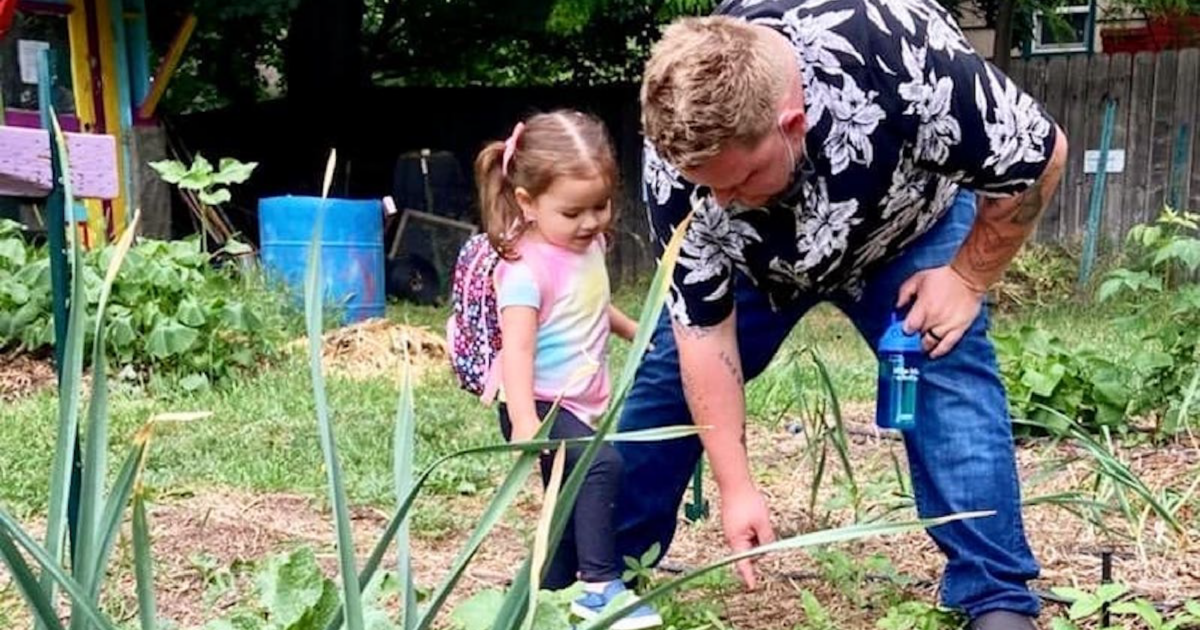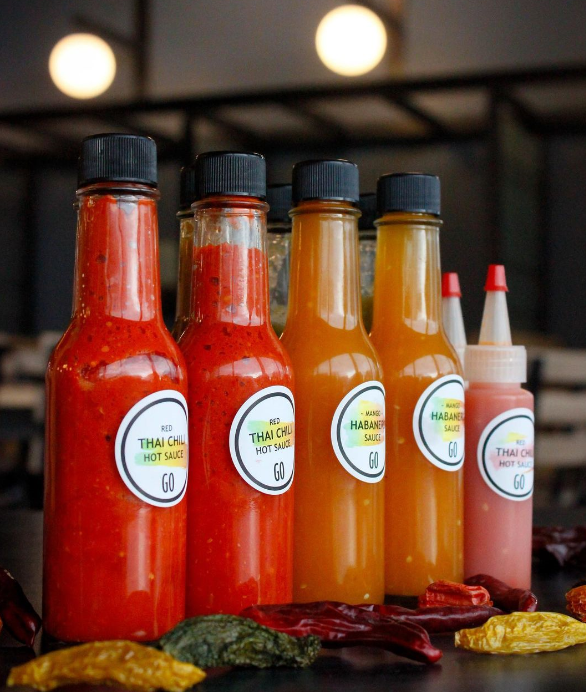Community Comes Together at the Whitman Organic Garden
- by Peter Todaro

Executive Chef Jon Sodini and his daughter weed at the garden
Each quarter we highlight a garden or farm on a college or corporate campus we serve (read our last installment about the garden at Capital Group’s Irvine campus!) This series provides a space to recognize and celebrate the ways that campus farms and gardens help communities to get together and do so much more than just grow food. Campus farms and gardens serve as living laboratories for education, measurable sustainability impacts, activism, health and wellness initiatives, and so much more. This quarter we’re excited to highlight the Whitman Organic Garden at Whitman College in Walla Walla, WA.
Founded almost 25 years ago, the Whitman Organic Garden sits on an urban plot of land at the edge of the Whitman campus, steps from the neighborhood that borders the college. Staffed by student interns and supported by community members and Bon Appétiters alike, the garden’s 18 growing beds, chicken coop, and gazebo serve as a space for neighbors to come together in common effort.
The garden is overseen by Dr. Susanne Altermann, a green-thumbed Senior Lecturer in Whitman’s Biology Department, who offers advice and support to the team of student interns who run the garden throughout the year. Despite its small size, the plot possesses an incredible diversity of crops, from perennial grapes that make for a delicious late summer treat to hot peppers that the Bon Appétit at Whitman team turn into house-fermented hot sauce, which in turn is served at the school’s Cleveland Commons café.
Growing Community Food Security
The student interns who tend to the garden’s beds all summer take care of a small flock of laying hens, which provide a steady, albeit modest, harvest of eggs every week. Lucy Wood ‘23, a psychology major who serves as a student Sustainability Coordinator for Bon Appétit, also oversees the garden’s chickens, ensuring that they’re fed on time and working with a local farmer to house them during Walla Walla’s unforgiving winters. “The chickens are a way for the community to be involved in the garden,” says Lucy. “Community members volunteer to come and feed them.” In addition to growing food for their own consumption, Lucy and the student interns make sure that the chemical-free, hyperlocal produce they grow gets into the refrigerators and pantries of their neighbors. They’ve created a mini-food pantry in partnership with a hunger-fighting student organization on campus, leaving free produce and eggs out at the garden’s gazebo for anyone to take, and supplementing it with shelf-stable canned goods.

Hot sauces made with garden-grown ingredients on display at Whitman’s Cleveland Commons
While most of the garden’s production is given directly to community members, some now finds its way into the dining hall thanks to Executive Chef Jon Sodini and his team, who have built a relationship with the farm interns over the years and eventually received a small garden plot of their own to steward. John and a handful of culinary team members started a “garden committee” and pitch in to sow seeds, weed, and harvest. Each year they grow a wide variety of vegetables including tomatoes, cucumbers, peppers, as well as heirloom kale and daikon radishes. The team incorporates as many ingredients from the garden as possible into their menus and have had a blast experimenting with fermented hot sauces from garden-grown hot peppers and other condiments like ketchup when the summer tomato crop is abundant. Another focus for John and the team has been growing edible flowers to garnish and include in the dishes they serve on campus. In the summer of 2021, they planted five varieties of nasturtium, marigolds, borage and campanula, or creeping bellflower. Some flowers are preserved in ice cubes or dehydrated to preserve their color.
As with many campus farms and gardens, the intangible social benefits of the garden are perhaps the most impactful. The student interns organize volunteering days, in which neighbors and students mingle while planting, weeding, or harvesting. Professors organize class field trips, with one Environmental Studies class recently doing a tea-making workshop after foraging perennial herbs at the garden. “It’s common to see people just chilling and doing their homework there,” says Lucy. “It’s a hangout spot on campus.” More than just eggs, produce, or hyperlocal hot sauces, community is the crop being grown at Whitman’s Organic Garden.